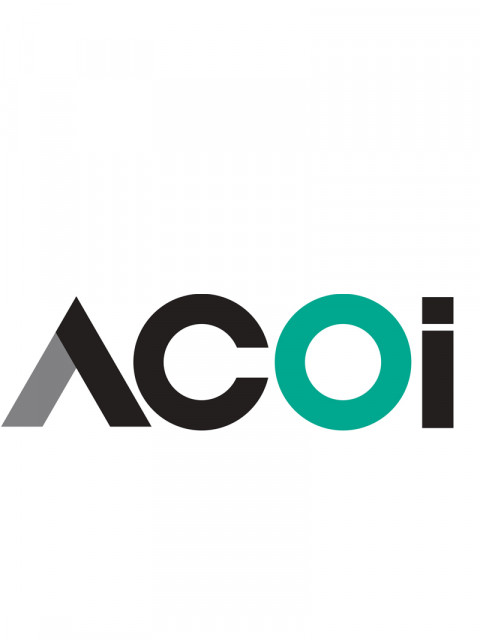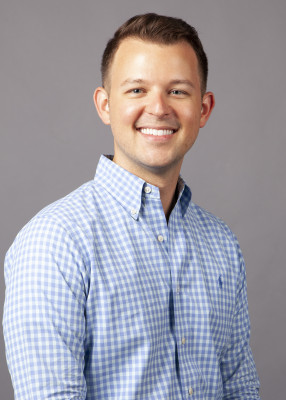
A Vitality-Driven Approach that Empowers Patients
by ACOI
January 31, 2025
 In December 2024, ACOI member Ryan Morgan, DO, FACOI, was appointed to the Oklahoma Advancement of Wellness Advisory Council. His term began just a month ago, in January 2025, and while it is still a bit early to know what to expect, he is hopeful it will be an opportunity to help make some positive health policy changes.
In December 2024, ACOI member Ryan Morgan, DO, FACOI, was appointed to the Oklahoma Advancement of Wellness Advisory Council. His term began just a month ago, in January 2025, and while it is still a bit early to know what to expect, he is hopeful it will be an opportunity to help make some positive health policy changes.
The recognition doesn’t just reflect Dr. Morgan’s involvement with the Oklahoma County Medical Society and the Oklahoma State Medical Association. His history of providing care for Oklahomans extends to his work with Vitalis Metabolic Health, a private practice of which he is co-founder as well as main practitioner. Through Vitalis, Dr. Morgan offers highly personalized weight management care, which has offered immense insight into unique ways to treat the whole person.
Since opening its doors in 2019, the practice has been an opportunity to work closely with patients and guide them toward better health, as well as to explore conditions on a deep, personalized level. And it has meant understanding the complex dynamics behind obesity while navigating the social and business side of this kind of care.
Finding a Path toward Preventive Care and Problem-Solving
Dr. Morgan had an interesting—and relatively early—introduction to osteopathic medicine. His father’s step-grandfather was an osteopathic physician who attended A.T. Still University Osteopathic Medical School in Missouri. Blind from age 19, he needed a reader to help him with his medical school textbooks. After completing medical school, though he had limitations on what he could practice, he consistently drew patients from out of state to his practice in Joplin, Missouri.
“My mom and I both get migraines,” Dr. Morgan recounted, “and I remember, one time on a drive to Springfield, we stopped in Joplin [to see their relative] because she was getting a migraine. She knew she couldn’t drive while it was affecting her vision, and he did manipulation [OMT] on her—and her migraine just vanished. For us, that was really cool, because nothing else had ever done that before.”
That firsthand experience inspired Dr. Morgan, who ultimately got his DO at Oklahoma State University College of Osteopathic Medicine. Being there, he said, was akin to being in “a family environment—it felt like the right fit.” And it pointed him toward the path of becoming an internist.
“When I was in medical school,” he said, “I liked everything. There was no particular field that uniquely stood out to me. But I noticed myself asking a lot of questions—for example, on my ER rotation, I’d always want to know what happened to the people I treated. My friends were the first to say I should do Internal Medicine because of that: asking questions, being detail oriented.”
An Internal Medicine residency at Oklahoma State University Medical Center affirmed this decision. Working at INTEGRIS Southwest Medical Center in Oklahoma City as a hospitalist did the same, by way of contrast: “I enjoyed it, but I think I missed being able to feel like I could do more preventative health care. A lot of people would come into the hospital, and there was a high likelihood I would see them admitted again within the year. I didn’t feel like I was fixing anything.”
At an ACOI Annual Convention, another interest was sparked when one of the speakers shared studies on obesity that Dr. Morgan had never heard before. That speaker also alluded to a certification in obesity medicine. “I thought I’d try some of the courses and then decide [later] if I wanted to get certified,” said Dr. Morgan. “As I was listening to the lectures, they were so fascinating—there were times I’d rather listen to one than watch a favorite TV show. So that was when I figured, I might as well get the certification.”
Then came the realization that using the certification would combine a depth of problem-solving with a more personal level of preventative care. That was when Dr. Morgan floated the idea of starting a private practice to co-founder and husband Bryan Luff, and the result was Vitalis.
Providing Highly Encouraging and Individualized Care
Through Vitalis, Dr. Morgan and Luff have created an environment that truly puts a whole-person approach into practice. Patients often come in with a great deal of baggage from the ways other people—and other doctors—talk about obesity. Dealing with those complicated emotions is part of the process. “It just takes some time before they realize we’re not going to blame them,” said Dr. Morgan. “Part of my first patient appointment is explaining the disease part of obesity, and helping shed the stigma that goes along with it.
“I talk about how, if we have gained a set amount of weight and we lose it quickly, no big deal—but once it has been on for six months, 12 months…the longer it’s there the more the adipose tissue can affect the brain and reset the ‘thermostat’ of what brain thinks your weight should be.” He noted that several trials have shown high rates of weight regain are typical after weight loss, which demonstrates certain metabolic changes. When he takes the time to explain this metabolic compensation to patients, it clarifies the biological and physiological processes going on, helping to free them from cycles of self-blame. Once they realize that weight loss is about more than willpower, they are prepared to use tools beyond diet and lifestyle—such as medications—to get healthier.
While obesity medicine is Vitalis’s primary focus, Dr. Morgan took the time to get certified in clinical lipidology as well, to better understand how the two areas overlap. Connecting with a local group of clinical lipidologists allowed him to find community as well as find more patients he could serve. Ultimately, that too has proven to be a means of practicing Internal Medicine with a whole-person focus.
“What I try to explain to people are clinical lipidology, obesity medicine, hormone certification—none of these are officially recognized by ABMS or insurance,” he said. “And from that perspective I am still seen as an internist at the end of day. I have an obligation to still practice as an internist. If I see someone who has insomnia, and I know interrupted sleep can contribute to gaining weight—and they’re seeing me for weight loss—then I have to address them as a whole person and explore everything that makes up good health.”
This work is not without its challenges, especially logistical: a private practice is essentially a small business that requires specialized knowledge. From finding legal assistance that understands health care, to dealing with insurance panels and the credentialing process for a small clinic, Dr. Morgan said, “I learned more about the healthcare system, PBMs, and how insurance companies work through the practice than I ever did working for a hospital.”
Yet the rewards of serving patients in this personal, nuanced way balance out many of the difficulties. Dr. Morgan spoke to the powerful effects of “seeing people talking about their non-scale [related] victories...finding better self-image, better mood, better sleep, less joint pain. It’s rewarding to be able to spend more time with patients—educating and explaining things, doing diagnostic workups. Those are the parts I enjoy—that and having the freedom to do them.”

